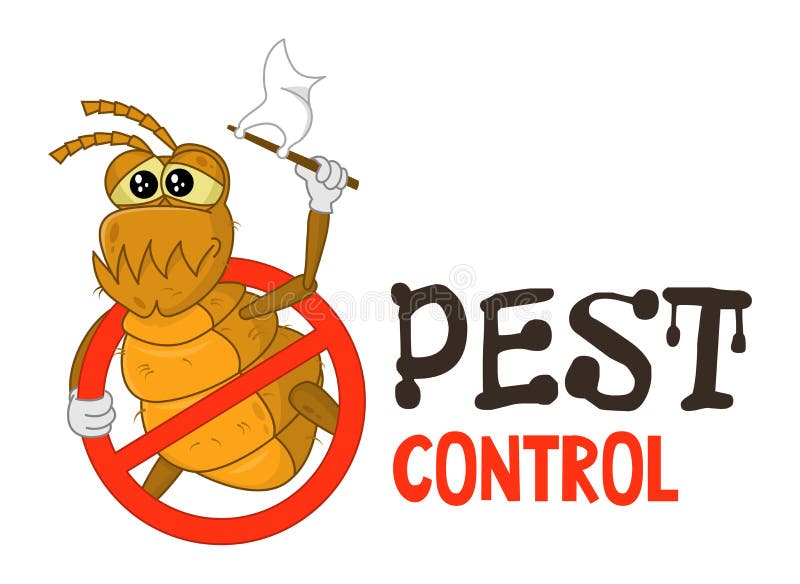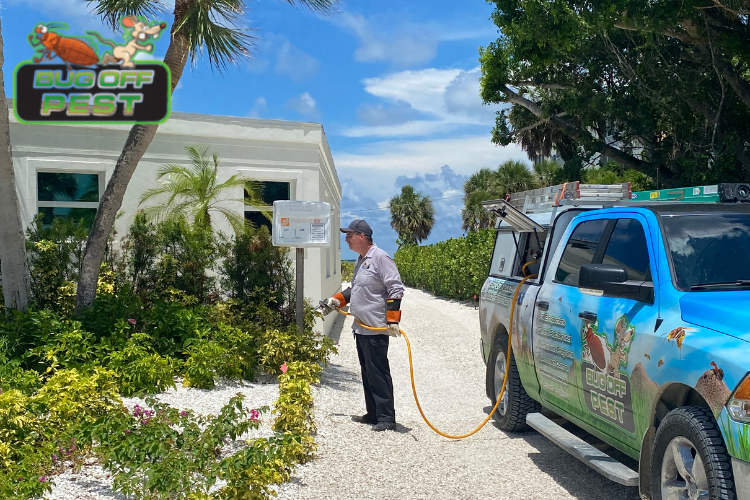Uncover the Value of Parasite Control in Preserving a Healthy And Balanced Setting and Therapy Strategies

The Role of Pests in Ecosystems
Pests, often viewed only as problems, play a multifaceted role in environments that is crucial for keeping environmental equilibrium. They add significantly to numerous eco-friendly processes, consisting of pollination, vitamins and mineral biking, and pest control. Several insect varieties, such as butterflies and , are crucial pollinators for a vast range of plants, which in turn sustains biodiversity and food manufacturing.
Additionally, parasites function as victim for countless predators, developing a vital link in food webs. This interdependence ensures the survival of various species and helps manage populaces within ecosystems (Termite treatment Port Charlotte). Decomposer parasites, such as certain beetles and fungi, are instrumental in breaking down natural matter, hence improving soil and promoting nutrition recycling.
On the other hand, while insects can be useful, their overpopulation or intrusion into non-native atmospheres might interfere with these eco-friendly features. This complexity highlights the importance of understanding parasite characteristics, as reliable insect administration strategies need to think about both their environmental duties and possible influences on human activities. Stabilizing pest existence while decreasing injury is important for maintaining the stability of ecological communities and guaranteeing farming performance.
Wellness Dangers Related To Parasites
The presence of pests in numerous settings prolongs beyond their eco-friendly roles, as they additionally position considerable health and wellness risks to animals and people. Many bugs, consisting of rats, bloodsuckers, and bugs, are providers of conditions that can have severe health effects. Rats are understood to transmit hantavirus and leptospirosis, both of which can lead to severe breathing and kidney concerns, specifically.
Bugs such as ticks and insects are infamous for spreading vector-borne diseases like jungle fever, dengue high temperature, and Lyme disease. These ailments can result in high morbidity and mortality rates, especially in vulnerable populations. Additionally, bugs like roaches and insects can aggravate allergic reactions and bronchial asthma, adding to respiratory system problems in individuals, specifically those with pre-existing conditions.
Furthermore, the presence of parasites can result in psychological tension and pain, influencing total health. Contamination of food and surface areas by pest droppings and continues to be can bring about foodborne health problems, highlighting the relevance of keeping sanitary conditions. Comprehending the wellness threats connected with insects is essential in acknowledging the necessity of efficient pest administration techniques to safeguard human and animal health.

Advantages of Reliable Pest Control
Effective bug control is essential for preserving a healthy and risk-free environment, as it constantly mitigates the numerous risks related to pest invasions. One of the main advantages of effective pest management is the decrease of health and wellness hazards. Parasites such as roaches, rodents, and mosquitoes are vectors for conditions that can impact both people and pet dogs. By regulating these populaces, the possibility of disease transmission is significantly reduced.
Furthermore, efficient pest control safeguards residential property and structures from damage. Lots of bugs, like termites and carpenter ants, can cause extensive architectural damage that might need pricey repair services. By proactively handling these property owners, businesses and problems can secure their investments.
One more substantial benefit is the enhancement of total top quality of life. A pest-free environment adds to mental well-being and decreases stress and anxiety connected with problems. Efficient bug control cultivates a more secure atmosphere for animals and youngsters, guaranteeing that homes remain sanctuaries totally free from disease-causing microorganisms and unsafe discover this info here chemicals.
Common Insect Control Strategies

In the world of pest monitoring, numerous techniques are utilized to combat infestations effectively. These techniques can be broadly categorized into three major strategies: cultural, mechanical, and chemical controls.
Cultural control entails customizing practices to reduce bug establishment, survival, and reproduction. This may consist of plant turning, correct hygiene, and habitat adjustment, which jointly develop an atmosphere much less for pest expansion.
Mechanical control uses physical techniques to get rid of insects (Termite treatment Port Charlotte). Strategies such as barriers, vacuum cleaners, and catches are generally made use of to directly eliminate insects from a location. This technique is specifically effective for managing rats and bugs without making use of hazardous chemicals
Chemical control entails the application of pesticides to take care of parasites. These substances can be classified right into fungicides, insecticides, and herbicides, each targeting specific sorts of insects. It is important to make use of these chemicals judiciously, sticking to security guidelines and policies to minimize possible damage to non-target species and the environment.
Each insect control technique has its benefits and restrictions, and typically, an incorporated method integrating numerous methods generates the ideal outcomes in maintaining a pest-free environment.
Sustainable Insect Administration Practices
Sustainable parasite management practices encompass a variety of approaches developed to reduce environmental effect while efficiently managing insect populations. These practices prioritize the usage of ecologically pleasant approaches over chemical pesticides, therefore click this link minimizing the threat of damage to non-target varieties, consisting of valuable bugs, wildlife, and humans.
Integrated Bug Monitoring (IPM) is a foundation of sustainable techniques, integrating organic, social, mechanical, and chemical techniques to manage pests. For example, organic control entails presenting all-natural predators or parasites to subdue pest populations. Cultural techniques, such as plant rotation and polyculture, disrupt pest life cycles and boost environment resilience.
Mechanical approaches, such as obstacles or traps, can effectively stop insect gain access to without chemical treatment. Additionally, keeping healthy ecosystems through proper dirt monitoring, plant health, and biodiversity can naturally minimize pest problems.
Education and learning and recognition are essential components, empowering people and areas to acknowledge parasite dangers early and execute safety nets. Termite treatment Port Charlotte. By cultivating a holistic technique helpful site that stabilizes parasite control with eco-friendly integrity, lasting pest management practices not just safeguard plants and frameworks however additionally add to a much healthier atmosphere for future generations
Conclusion

Recognizing the health dangers associated with pests is critical in recognizing the requirement of effective parasite administration methods to protect human and animal wellness.
Reliable parasite control is crucial for preserving a healthy and balanced and risk-free environment, as it consistently minimizes the numerous risks linked with insect invasions.Integrated Insect Management (IPM) is a foundation of sustainable techniques, incorporating biological, social, mechanical, and chemical methods to handle bugs. By understanding the duty of bugs, recognizing connected health dangers, and using diverse therapy techniques, a lasting approach to pest administration can be accomplished. Integrated Pest Administration (IPM) emphasizes a holistic method that reduces harm to beneficial microorganisms while effectively managing insect populations.